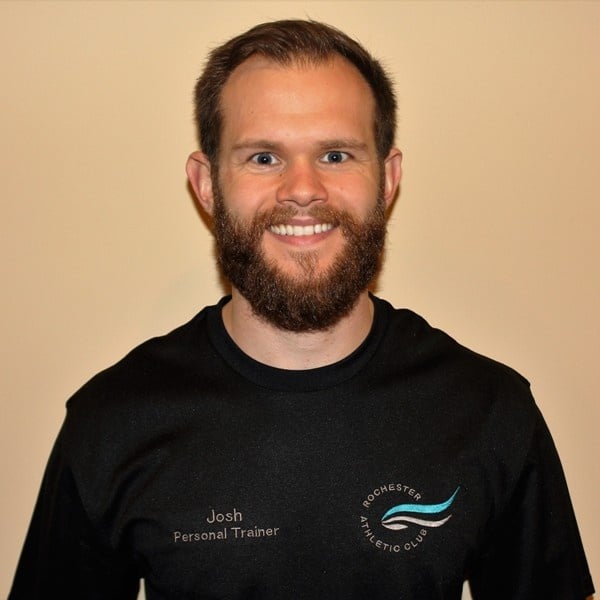Are You Sitting Too Much? Let’s Examine
Posted by Josh Lewis on May 31, 2018
Many of us spend much of our day revolved around sitting. We sit while driving to and from places, sit when eating our meals, sit at a desk in class or at our jobs and sit during shows and many social events. Finally, we finish our nights in our comfortable large couches or recliners, watching the nightly news or our weekly TV shows. While we may feel emotionally and mentally exhausted, the truth is that we didn’t move much or expend much physical energy during our day.
This post is not meant to demonize all sitting. For example, sitting and relaxing can be a great reward after a tough day. Instead I simply intend to help take a fresh look at the amount we are sitting each day, how it can impact our health, and then suggest ways to break up that time and decrease the overall amount of sitting. Here are some ideas to consider:
Researchers have found that sitting for long periods of time during the day has been linked to a higher risk of heart disease, high blood pressure, and cancer. Many compare it to be the modern day form of smoking. Prolonged sitting may also trigger us to eat more which can lead to increased weight gain and belly fat. If you feel you’ve been eating healthier and working out consistently but are still seeing no progress towards your goals, sitting too much could be the culprit that is holding you back.
Research has also found that while exercising for an hour a day is very healthy for us, it may not be enough to undo 8 hours of sitting in a day! Does this mean that we should say forget our hour of exercise per day or quit our jobs that require us to sit all day? Definitely not! It does, however, mean that it is also a good idea to work more movement in throughout your day in order to get the activity your body needs.
If you spend much of your day sitting then you could be missing out on a relatively easy way to burn quite a few calories. Next to metabolism, the second largest way that our body uses calories is through non-exercise activity thermogenesis (NEAT). NEAT accounts for essentially any activity we do throughout the day, not counting your workout, such as steps or any other movement. Since the calories burned by this movement accumulate throughout your whole day, compared to the limited time of your workout, it can add up to a much greater total of calories burned.
Researchers state that the more you move the better off you are. This can include simple things such as changing positions while sitting or taking a quick second to stretch. Experts also suggest getting up at least every 30 minutes if possible.
Here are 11 easy ways to get you up moving around more and increasing your NEAT:
- Stand at work when possible (or use a standing desk or even a treadmill desk if possible.)
- Replace your chair with a stability ball that will require you to keep your body, especially your core, engaged while sitting.
- Every 30 minutes or hour add in some type of exercise that doesn’t take up much room, such as 10 squats or push-ups.
- Use a smaller coffee cup or water bottle that will require you to get up to refill it more often.
- Go for a quick walk around your building during breaks or lunch.
- Stand up while eating and talking on the phone.
- Get up and walk around your house during commercials on TV.
- Walk or bike to places instead of driving when possible.
- Park farther away in parking lots instead of driving around looking for the closest spot.
- Take the stairs instead of the elevator or walk when on an escalator.
- Engage in enjoyable activities and events that cause you to move around instead of sitting.
Want to learn more about your level of activity?
A good way to track your steps or activity can be through the use of a Fitbit type wrist monitor or by using an app on your phone to get a baseline of the normal amount of steps you get in a day. From there you can start to institute small changes to add activity. While 10,000 steps is considered the gold standard, even increasing your steps by 500 to 1000 a day can make a big difference over time. Keep moving - every step counts!
References:
Owen N, Bauman A, Brown W. Too much sitting: a novel and important predictor of chronic disease risk? British Journal of Sports Medicine 2009; 43:81-83.

Josh Lewis
Personal Trainer Josh Lewis M.Ed., NSCA CSCS has a Bachelor’s degree in Kinesiology from UW-Eau Claire and a Master’s degree in Kinesiology from the University of Minnesota. When he’s not at the gym he enjoys hiking, camping, fishing, hunting and watching sports with family and friends. Josh’s love for being active, along with the enjoyment he receives from helping people reach their goals, is what led him to become a Personal Trainer.
Contact Josh Lewis at (507) 287-9335 ext. 351.



